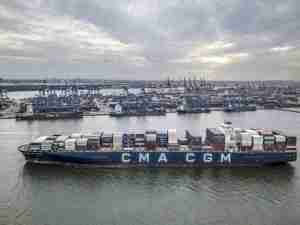Despite a recent rally on the larger capesize market, brokers and analysts expect vessel supply, which has outpaced commodity demand, to cap dry bulk freight rate gains in coming months with economic uncertainty adding to headwinds.
"For this year we are on course for 96 to 97 million deadweight tonnes of new building deliveries -- the highest ever. We expect to see new building deliveries next year approaching 90 million deadweight tonnes (dwt)," said Derek Langston, a senior director at SSY Consultancy and Research.
That compared with 78.7 million dwt delivered in 2010 and 43.4 million dwt in 2009, SSY said.
Worries over the health of the world economy have signalled more pain in the coming months for dry bulk ship owners, who face a glut of new vessels ordered when times were good.
SSY said in the first nine months of the year, 191 capesize vessels were delivered versus 159 hitting the water in the same period last year. Deliveries of smaller panamaxes reached 217 by the end of September, versus 130 at the same time last year.
"It looks like this year will be the peak for capes but not for panamax deliveries," Langston told Reuters.
Capesizes, which typically transport 150,000 tonne cargoes such as iron ore and coal, have driven a recent rally in earnings helped by firmer coal and iron exports from Australia and Brazil to China. Japan's coal imports have also picked up, while Colombian and South African sales have bolstered rates.
Langston said capesize port congestion off Australia, China and Brazil had risen to 153 -- its highest level since the end of February. That compared with 105 capes waiting to berth in late September and 180 at the end of February.
"When this happened in the past, it helped to support rates and helped to amplify the effect of increased chartering," he said.
"Conversely if there is a pause in chartering activity then the process of decongestion helps to magnify the downside."
Analysts expect oversupply issues to continue to overhang the dry freight market in the coming months ahead.
"While the influence of port congestion can be seen as a short-term positive for freight rates, the expected addition of 250 capesize vessels into the fleet this year underlines the pace of fleet expansion which will play a major role in shaping the market into 2012," Langston said. (Reuters)








